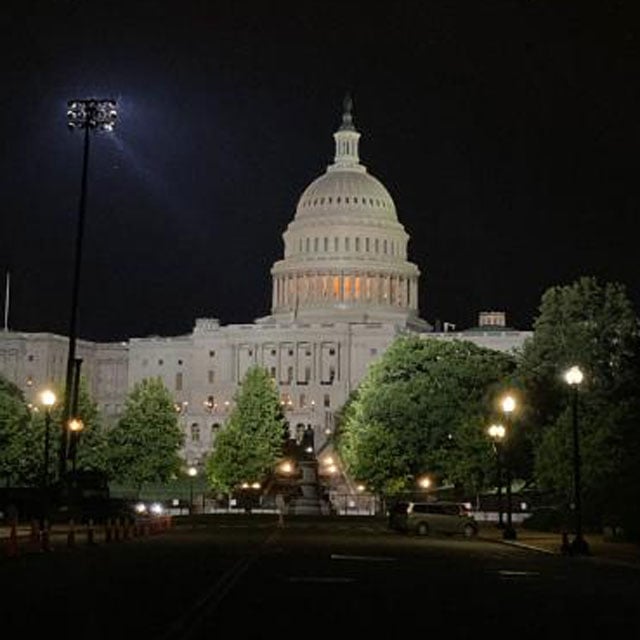 U.S. Capitol
U.S. Capitol
Credit union trade groups’ only wish for Christmas is nothing — no lame duck action by Congress to enact changes to interchange fees on credit cards and no finalization of rules by the CFPB.
But they are drafting lists of wishes for after President-Elect Donald Trump takes over in the New Year, starting with defending credit unions’ tax-exempt status.
Recommended For You
Some glimpses of possible future Ccongressional actions (or inaction) might be gleaned by tuning into YouTube for two hearings on Tuesday.
At 10 a.m. Sen. Dick Durbin (D-Ill.), an advocate of the interchange bill and other thorns in the sides of banks and credit unions alike, will host one of his final appearances as chair of the Senate Judiciary Committee. Fittingly, the hearing is called “Breaking the Visa-Mastercard Duopoly: Bringing Competition and Lower Fees to the Credit Card System.”
More excitement awaits at 2:30 p.m. as the U.S. Congress Joint Economic Committee holds a hearing whose title rests on the acclaim of an acronym: “Building on the Success of TCJA: The 2025 Tax Policy Debate.”
“TCJA” stands for the Tax Cuts and Jobs Act, or more commonly, the 2017 Trump tax cuts. They are set to expire in 2025. The committee’s vice chair, U.S. Rep. David Schweikert (R-Ariz.), does not want the tax cuts to expire, and “to get ahead of the curve” called for the hearing.
“Building on TCJA’s foundation will supercharge the economy and give Americans the opportunities they deserve to succeed,” Schweikert said in a news release Friday announcing the hearing, over which Schweikert will preside.
The Defense Credit Union Council (DCUC) heard in the hearing's announcement an opening for Congress to reconsider credit unions’ exemption from federal taxes, which goes back to the founding of the NCUA in 1934 as part of President Franklin Roosevelt’s New Deal. Roosevelt was a Democrat.
On Monday, DCUC sent a three-page letter to Schweikert and committee chair U.S. Sen. Martin Heinrich (D-N.M.). In it, Jason Stverak, DCUC’s chief advocacy officer, emphasized the importance of preserving the tax-exempt status of credit unions, citing their unique not-for-profit cooperative structure and the “significant economic and social benefits they deliver to members and communities across the country.”
“The tax-exempt status of credit unions is vital to their mission of people helping people, especially during times of economic uncertainty,” Stverak wrote.
“This status enables credit unions to provide affordable credit, financial literacy programs and tailored services that support low-income, underserved and military communities.”
In a press call Monday, Stverak said he expects bankers to make a renewed assault under Trump to remove credit unions’ exemption from taxes.
“Our friends in the banking sector have made taking on the credit union tax exemption their No. 1 priority,” Stverak said.
Meanwhile, the sun might appear to be setting on the bill that would limit the interchange fees banks and credit unions charge merchants. But America’s Credit Unions is remaining vigilant.
Carrie Hunt, America’s Credit Unions' chief advocacy officer, said in a press call Monday that the trade group continues to express its opposition to the interchange bill, which it expects to be among issues raised in the Judiciary Committee hearing.
“It will have a huge impact on us, so we will continue to fight to keep this legislation out of any vehicle that is moving at the end of this year or into next year as well,” Hunt said.
Asked why America's Credit Unions should worry about a bill that appeared to be on its last breath, Hunt said it has the support of merchants and some Republicans.
“It’s a bipartisan issue, so it’s going to be here for a while,” she said. “We’re going to have to continue our lobbying and push on it.”
While passing controversial legislation in a lame duck session of Congress is unlikely, Hunt said the trade group is watching the CFPB to see if it finalizes any of the rules America's Credit Unions opposes regarding credit card and overdraft fees “in the waning days of the Biden administration.”
If it does, Hunt said the CFPB might:
- File lawsuits.
- Ask Congress to use the Congressional Review Act to change some of those rules permanently.
- Or, if President Trump replaces the director of the CFPB, ask the new director to reverse the offensive Biden-era rules.
“I will note credit unions don’t support the wholesale changing of rules just to change them,” Hunt said.
© Touchpoint Markets, All Rights Reserved. Request academic re-use from www.copyright.com. All other uses, submit a request to [email protected]. For more inforrmation visit Asset & Logo Licensing.







